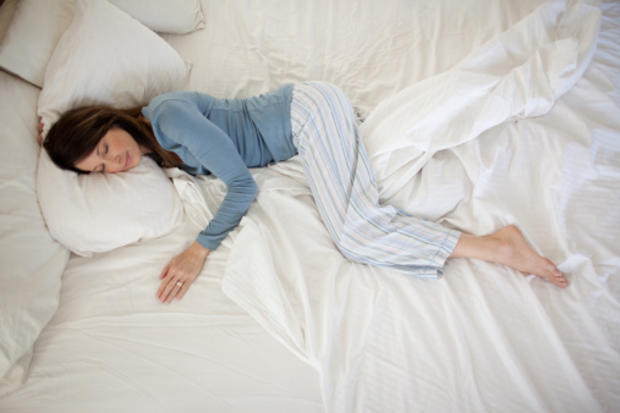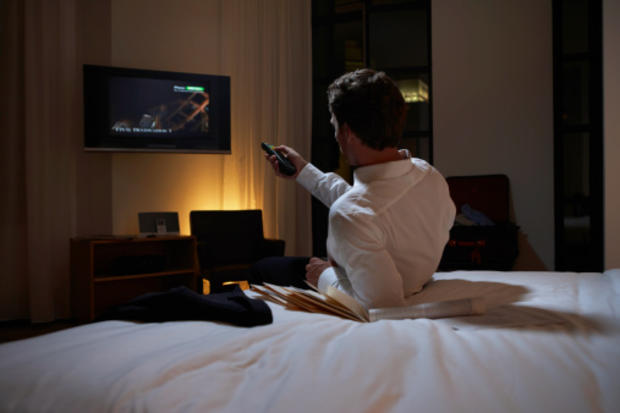Sleep hacking tips: 7 ways to maximize your Zzzzz's
Mind what (and when) you eat or drink. Avoid caffeine after 2 pm, advised Dr. Charles Bae, a sleep specialist at the Cleveland Clinic.
It is also important to remember that the consumption of other stimulants such as nicotine and alcohol may prevent you from sleeping well, said Dr. Christopher R. Jones, a professor at the Department of Neurology at the University of Utah.
And, if you eat shortly before going to bed, you are more likely to suffer from acid reflux, he said, which can also disturb your sleep.
Read: Secrets of short sleepers: How do they thrive on less sleep?
Are you a night owl?
Are you a night owl, or a lark who's up with the sun?
Individual sleep patterns and preferences vary, as some people -- so-called night owls -- naturally prefer to go to bed late, while others are naturally inclined to get up early.
If possible, experts say you should try to schedule your professional and social calendars around those natural preferences to help you function better during the day. However, this may be particularly tough for night owls with 9-to-5 jobs who can’t do much about their fixed work schedules.
Those people may want to talk to a sleep specialist, Jones said, to help them adjust and deal with functioning on a schedule that isn't ideally suited to their natural sleep preferences.
Don't argue in bed
Don’t argue with your partner in bed, Jones says.
In fact, it's best to make sure that your brain learns the bed is a restful place for sleeping, not a hotbed of conflict. If partners have a tendency to end the day bickering, it may be a sign of relationship issues that need to be addressed, he said. “Maybe there is a sexual agenda that’s not working for them,” Jones said.
Regardless of the real source of the conflict, trying to resolve it late at night can certainly prevent you from sleeping well.
Exercise
Exercise can help improve sleep quality. However, expert opinions differ on the timing.
For some people, exercising before bed may keep them awake. Bae said that it varies from one person to another, but exercising at night actually works for some people. “You don’t want to do it right before you go to bed,” but working out two hours before may be worth trying, he said.
Bae added that the mechanism behind exercising and improved sleep quality is not completely clear, but it likely has something to do with a change in the body temperature that increases during exercise and then falls when the body cools off.
Taking a warm shower shortly before going to bed may have a similar, sleep-inducing effect.
Stick to a schedule
Consistency matters when it comes to establishing a sleep routine.
“The best thing is to try to get a consistent amount of sleep every night,” Bae said. And “every night” means both during the work week and on the weekends. The only exception applies to people who are regularly sleep deprived from Monday to Friday; they should try to sleep more whenever they can.
But in general, it is best to get your optimal amount of sleep every day and stick to the same schedule.
Turn off electronics
“Don’t go to bed with your smartphone or tablet,” Bae recommends.
There are several reasons why you should follow this advice. First, people often keep checking the time on their devices, either before falling asleep, or if they wake up in the middle of the night. This often stresses people out and may exacerbate the issue of "sleep performance anxiety," as Jones calls it: worrying about falling and staying asleep, which can ironically keep people awake.
Sleep can also be disrupted by the blue-spectrum light that emanates from electronic devices, disturbing people’s natural circadian rhythm, Bae said.
TV time
What about watching TV in bed?
Some experts discourage people from watching TV right before going to sleep, and especially watching in bed.
But Bae thinks if it's part of a person's routine and does not prevent them from falling asleep, they don't have to change it. “Not all TV watching is bad,” he said, as long as the TV does not stay on all night.
Read: Secrets of short sleepers: How do they thrive on less sleep?






